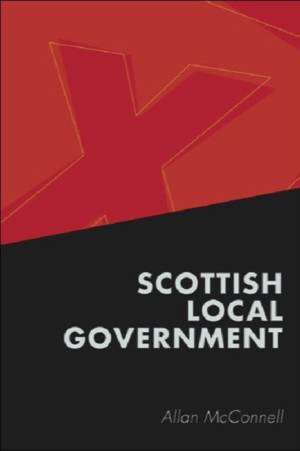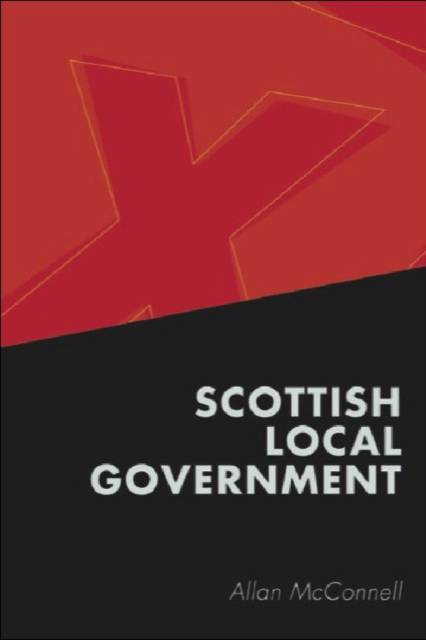
- Afhalen na 1 uur in een winkel met voorraad
- Gratis thuislevering in België vanaf € 30
- Ruim aanbod met 7 miljoen producten
- Afhalen na 1 uur in een winkel met voorraad
- Gratis thuislevering in België vanaf € 30
- Ruim aanbod met 7 miljoen producten
Zoeken
Omschrijving
This book fills an important gap in our understanding of Scottish local government in the dynamic new context of the Scottish Parliament. It provides academics, students, practitioners, journalists and others with a broad-ranging yet detailed account, not just of how local government actually works, but also the main political issues and debates surrounding its multi-faceted roles in contemporary Scotland. It covers issues such as: *The nature and purpose of Scottish local government*The strengths and weaknesses of unitary authorities*Modernisation of political management arrangements*Roles and remuneration for councillors*Electoral reform and new methods for encouraging citizen participation*The growth of non-elected local governance*Best Value and the rise of the performance culture*The politics of council finance: including business rates, Council Tax and PFI*The wider context of central-local relations, multi-level governance and globalizationThe book contains a wealth of facts, figures, tables and diagrams. The accompanying analysis draws, in a supportive way, on literature from the traditions of public policy, public administration and political science. The end result is an original, modern, accessible analysis of Scottish local government in the context of devolution. A particular focus throughout is assessing the 'distinctiveness' of Scottish local government compared to the rest of the UK, and addressing the question - to what extent has devolution made a difference to Scottish local government?Key Features: * Only modern work of its kind - fills a gap in our understanding of local government in Scotland* Accessible - offers the facts of how Scottish local government works, combined with incisive political analysis* Places Scottish local government in the context of the Scottish Parliament, Westminster, the EU and an increasingly globalised world
Specificaties
Betrokkenen
- Auteur(s):
- Uitgeverij:
Inhoud
- Aantal bladzijden:
- 288
- Taal:
- Engels
Eigenschappen
- Productcode (EAN):
- 9780748620043
- Verschijningsdatum:
- 21/09/2004
- Uitvoering:
- Hardcover
- Formaat:
- Genaaid
- Afmetingen:
- 160 mm x 236 mm
- Gewicht:
- 598 g

Alleen bij Standaard Boekhandel
+ 467 punten op je klantenkaart van Standaard Boekhandel
Beoordelingen
We publiceren alleen reviews die voldoen aan de voorwaarden voor reviews. Bekijk onze voorwaarden voor reviews.











